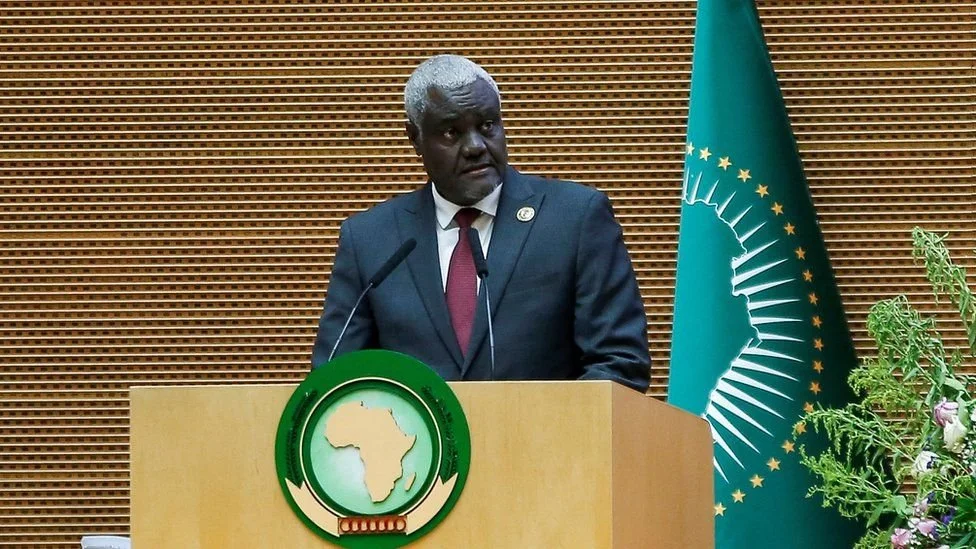Insights from the 2024 AU Summit
During his address to delegates at the recent African Union (AU) summit, AU Commission Chairperson Moussa Faki Mahamat lamented the waning spirit of African solidarity and pan-Africanism – a poignant departure from the ideals on which the AU and its predecessor, the Organisation of African Unity, were established. Indeed, African leaders assembled last week against a bleak tableau, confronted by a multitude of challenges besieging the continent, ranging from Sudan's tumultuous civil conflict to the power vacuum looming over the Sahel region.
Nevertheless, this year’s summit came at a time when Africa has a unique opportunity to showcase leadership on the international stage, helping to unite the Global South in pursuit of sustainable development and climate action. The AU has a central job in any such effort, playing an important role in championing African viewpoints in global discussions and confronting the continent's peace and security challenges head-on. This year’s summit presented member states with yet another chance to delineate a roadmap for tackling the array of challenges confronting Africa, while also bolstering the organisation's capability to achieve its goals.
This Insights explores some of the key topics that dominated discussions at this year’s AU summit.
Mauritania to Chair the AU in 2024: The AU saw a transition in leadership with Mauritanian President Mohamed Ould Cheikh El Ghazouani succeeding Comorian President Azali Assoumani as the AU's ceremonial head. Despite the challenges surrounding his nomination, Ghazouani is a consensus candidate, positioning himself to steer the continent towards Agenda 2063. In his address, Ghazouani also stressed the need for an "educational revolution," aligning with the AU’s 2024 theme “Educate an African fit for the 21st Century,” and underscored the importance of enhancing Africa's human development index and fostering greater economic integration through initiatives like the African Continental Free Trade Area. Angolan President João Lourenço is set to assume the Chair in 2025.
Horn of Africa Tensions: Ghazouani’s remarks were somewhat overshadowed by Somali President Hassan Sheikh Mohamud's accusation that Ethiopian security forces obstructed his entry to the summit venue in Addis Ababa. The incident unfolded against the backdrop of a contentious dispute involving the breakaway region of Somaliland. Earlier in the year, Ethiopia and Somaliland leaders signed a Memorandum of Understanding, granting Addis Ababa access to the sea for commercial purposes and a naval lease in exchange for recognition of Somaliland's statehood and other concessions. This agreement, however, provoked strong opposition from Somalia, which views Somaliland as part of its territory. The AU, upholding Somalia's territorial integrity, called for restraint, but tensions soared following the summit incident.
Collapse of Institutions of Regional and Continental Governance? At the summit, Faki sounded the alarm on a "new phenomenon of collapse of institutions of regional and continental governance,” highlighting Mali, Burkina Faso, and Niger – all of whom jointly announced their withdrawal from the Economic Community of West African States last month. This unsettling trend, according to Faki, extends across various regional economic communities, including the East Africa Community, where Burundi and Rwanda find themselves in renewed deadlock. Cracks in these institutions threaten the fabric of regional cooperation and collective security on the continent, undermining efforts to foster unity and prosperity.
Education and Skills Development: The AU’s theme for 2024 – "Educate and Skill Africa for the 21st Century" – was another key discussion item, with leaders emphasising the key role the continent must play in the unfolding Fourth Industrial Revolution. Leaders emphasised the urgent need to harness technological advancements to drive value addition in critical sectors such as agribusiness, manufacturing, green transitions, and global health. By leveraging Africa's abundant workforce, they argued, the continent can unlock economies of scale and foster innovation on a global scale.
New AU Commission Chairperson in 2025: The AU has also begun the process of selecting a new AU Commission chairperson to succeed the incumbent, Moussa Faki Mahamat. Unlike the AU chairperson (Ghazouani), the Commission chairperson serves a four-year term and oversees the organisation's secretariat. The new chairperson will be selected at the next AU summit in 2025, as will his/her deputy and six commissioners who collectively constitute the Commission's top leadership. Member states have until May 2024 to nominate candidates. Notably, Kenyan Opposition leader Raila Odinga has thrown his hat into the ring, endorsed by former Nigerian President Olusegun Obasanjo.
In spite of institutional constraints and financial limitations, the AU perseveres in its distinctive role within African diplomacy and peace-making. Recent endorsements by the G20 serve as a testament to its central position in shaping the Africa’s trajectory – both within and beyond the continent’s borders. As such, investors would be wise to closely monitor its initiatives coming out of this 37th AU summit.


